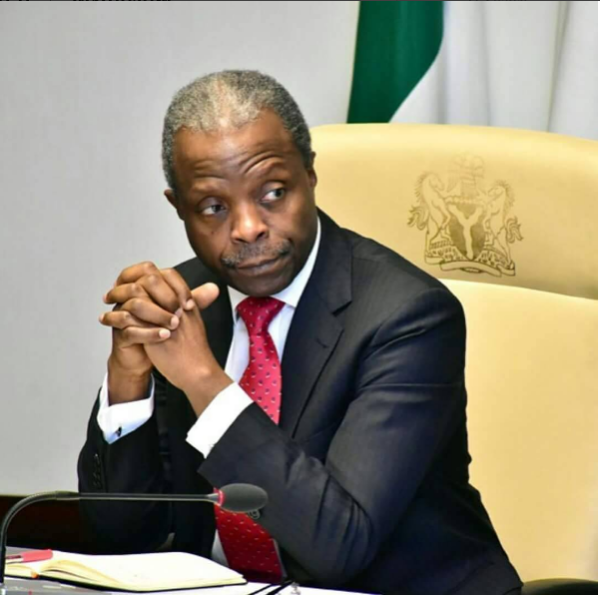The Federal Government on Monday gave states in the country conditions to be met before any further financial assistance would be deployed to them.
Vice President Yemi Osinbajo laid down these conditions at the 2-day national workshop on alternative sources of revenue generation for sustainable development in states and local government councils in Abuja.
Osinbajo, who was represented by the Minister of Finance, Mrs. Kemi Adeosun, pointed out that the Federal Government still stands by the 22-point Fiscal Sustainability Plan introduced in 2016, aimed at enhancing fiscal prudence and transparency in public expenditure.
According to him, independent monitoring and evaluation of states against agreed milestones under the FSP has been concluded and further consideration for support to states, will be solely dependent on reports from the exercise.
The 22-point FSP for sub-national governments was introduced and acceded to by the state governments to enable them properly manage their resources amid dwindling revenues.
While Federal Account Allocation Committee (FAAC) requires N700 billion to cover monthly salaries, statutory transfers and debt services, it only gotten close to N500 billion on single occasion, necessitating the launch of the FSP.
According to the strategic objective two of the FSP, states must focus on improving public revenues, requiring each state to set realistic and achievable targets for improving internally generated revenue (IGR) from all revenue generating activities of the state in addition to tax collections.
The workshop themed, “Alternative Sources of Revenue for Sustainable Development in States and Local Government Areas in Nigeria,” aimed at increasing the alternative sources of revenue for nation.
According to the Vice President, the FSP idea was “for each state government to look inwards and come up with a plan that was best suited for the state based on available resources.”
He further pointed out that the FSP recommended the privatisation of state owned enterpreses, “establishment of efficiency unit to reduce overhead expenditures, biometric capture of all civil servants, implementation of continuous audit to reduce revenue leakages, and measures to achieve sustainable debt management.
“For the state that fully implemented the 22 Action Plan, I have no doubt in my mind that there is a clear difference. Independent monitoring and evaluation of states against agreed milestones under the FSP has been concluded and further consideration for support to states will be solely dependent on reported from third exercise.
“Fiscal discipline, improved revenue generation, rational allocation and efficient use of resources, must be strategies adhered to by every tier of government if we must return to a path of sustainable growth.”
In his welcome address, the Acting Chairman of RMAFC, Alhaji Shettima Umar Babagana, said the RMAFC had been observing the declining trend of revenue in states and local government due to the dwindling revenue flow.
Bababgana noted that government has decided to look inwards to alternative sources through solid minerals development.
He said that the imperative of the workshop was based on the fact that revenue generation has dropped due to the sharp fall in oil price and production hence the need to educate people especially leaders in states and local government areas on how to explore new sources of revenue and how to improve their revenue base so as to sustain governance.
He said despite the collapsed in price of crude oil and the fallen revenue, as the Minister of Finance pointed out, in June 2014, the then government shared about N1 trillion in one month whereas in June 2016, the present government shared N320 billion.
“The fall in revenue clearly shows that there has been a major collapse in revenue generation. One-third of is averted despite that things are still going in although with difficulties but relative getting better”, he said.
“In some states, they have been able to raise their internally generated revenue to equal what they do receive from the federation account.
Some of these states have been able to pay salary with their internally generated revenue and others are also gearing up. “So there is a lot of interest by states to increase their internally generated revenue and to diversify.
For instant, Ondo State has engaged a Bitumen mining company to mine its bitumen deposit and generate revenue for the state.
That is the kind of drive we are talking about in addition to other states that are driving the development of agriculture and solid minerals,” he added.
The RMAFC chairman noted that the N-Power has helped to stabilise the economy, adding that the agency was designing new revenue means for the federation.
“The participants will at the end of the course be introduced to modern source of revenue generation, strategies and encourage public private partnership to generate revenue,” he said.
Babagana urged participants to actively be involved in the workshop adding that it will help in enhancing the drive for alternative revenue generation in the country.




